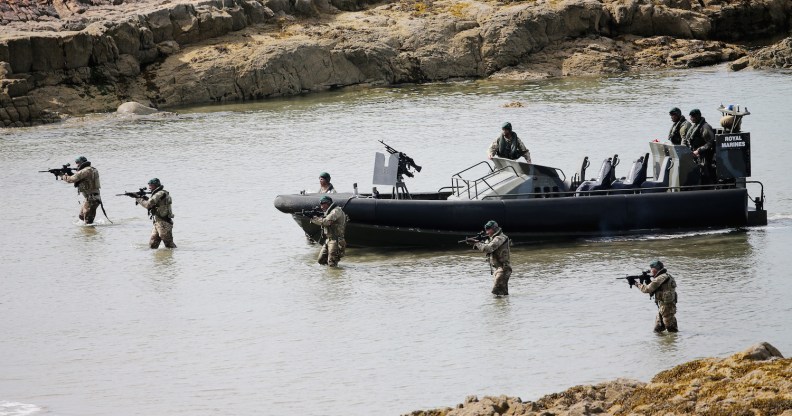Comment: The military should assess trans people, but not based on their gender identity

Writing for PinkNews, Naith Payton says it is wrong to assume that the bodies of trans women make them more suited to fighting on the front line.
In a recent interview with PinkNews, Lieutenant General Andrew Gregory said there was a case for trans women serving in the infantry and other frontline roles, but suggested that the same was not to be said for trans men.
Currently women are banned from serving in such roles, although it is constantly being reviewed. The Lieutenant General said this is “because of the physiological difference between men and women – hip configuration, bone muscle density. We do not know what the long-term physiological effects on their bodies of constantly carrying brutally heavy loads, 70-80 kilos, over long periods.”
This may very well be true. Its certainly true that on average, men are stronger than women, and men are more likely to have the required level of physical endurance for the role. But the top percentile of women for athletic ability is far higher than average for men, so plenty of women will be capable.
So he’s very likely right when he says: “Some women will be able to pass the entrance test for the infantry … not many but some will. Perhaps not many will want to, but some will.”
But then he goes on to say that trans women, women who were assigned male at birth, might be able to serve in frontline roles at the moment. He said “If somebody – birth gender male who physically has all the physical strength and durability but had transitioned, they might well be able.”
This unfortunately suggests that trans women’s bodies are just like men’s bodies. Which is not true at all.
A trans woman who has surgery that has involved removing her testicles, or who has been on hormone blockers for a long time, will likely have far less physical strength than an equivalent cis woman – let alone a man – as her body will produce little to no testosterone.
So a trans woman who is far along in her transition is actually far less likely to be able to meet the physical requirements of the infantry.
Since most trans men will take testosterone as part of their transition, which can lead to increased strength, trans men would be more likely to meet the requirements.
Although testosterone is not a magical strong juice – I’ve been taking it for four years and still sometimes need help with opening lids of particularly stubborn jars. It will simply help those men who are naturally predisposed towards strength and endurance.
Perhaps the answer is to judge each candidate individually based only on whether they meet the requirements for the role, and not their gender or gender history.
Or is that too much to ask?

